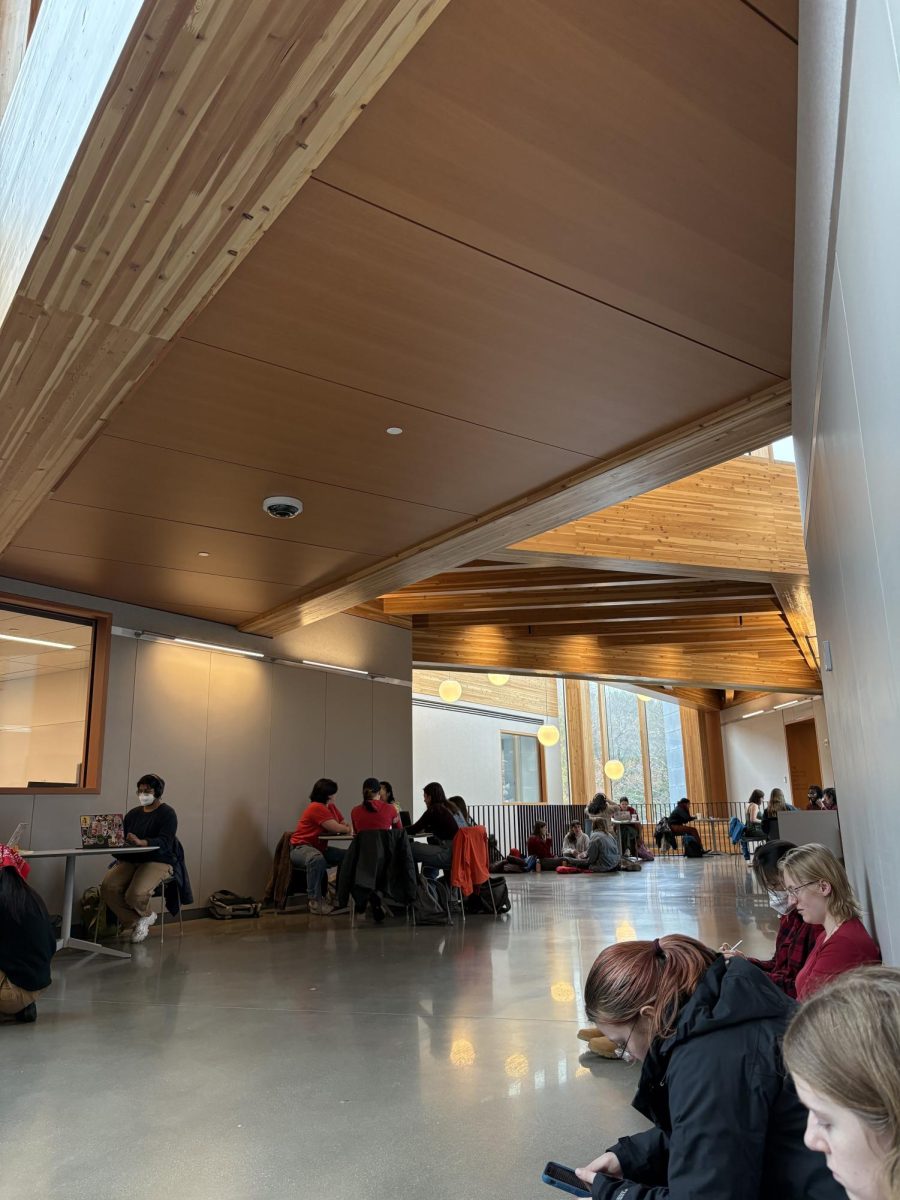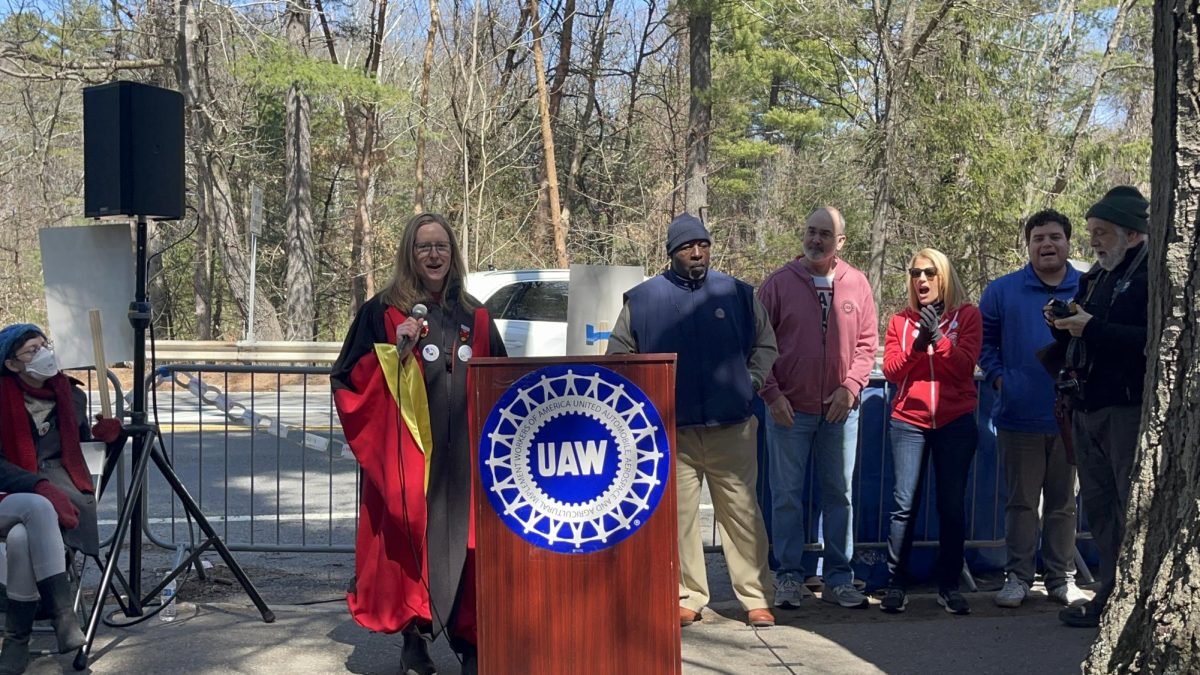In December of last year, the College administration entered contract negotiations with the Independent Maintenance and Service Employees Union of America (IMSEUA), which encompasses dining hall workers, custodians and groundskeepers. The negotiations remained largely unnoticed by the student body until Wellesley Underground, a self-described “alternative” Wellesley Alumnae blog, posted an interview with union representative Gloria Figueroa outlining a series of proposed changes. According to this interview, among the proposed changes were a 15 percent pay cut for new employees in dining, lower wages for union members who move into leadership positions and reductions in overtime pay.
Shortly after the Wellesley Underground article was posted to Facebook, Macy Lipkin ’23 emailed Vice President for Finance and Administration and Treasurer of the College Piper Orton, asking her to “put Wellesley’s money where its mouth is and pay food service workers the wages they deserve.” Orton’s response, which was posted to Twitter by a Wellesley alumna, claimed that the union’s statement contained some inaccuracies.
“Sometimes there’s a context that is broader and partial information doesn’t always paint the full picture,” Orton told The Wellesley News in a recent interview concerning these potential inaccuracies. “Part of it is that information goes out and then people [mis]interpret the information that goes out there… So for example, some people interpreted it as us having a dining union. We don’t have a dining union. We have a union that is inclusive of … employees across the board.” According to Orton, these kinds of misinterpretations inaccurately portray the scope of the union negotiations taking place.
Another piece of alleged misinformation contained in the Wellesley Underground interview was that the College was proposing wage cuts. In an email, Orton wrote that “the College is not proposing wage cuts for any of our existing employees, and is proposing to increase the starting wage of new dining employees from [the] levels in the current contract.” Orton also stressed that the full complexity of the contract negotiations could not be captured by simply saying that the College is proposing a 15 percent pay cut for new employees or reductions in overtime, and pointed out that the College has been paying its employees above market rate.
“Part of the process is to try to always ensure that the wages and the benefits that Wellesley College is giving are fair,” Orton said. “Seven years ago there was a look at what was going on in the market and Wellesley was very high in dining relative to other colleges and universities in the area.” The union disputes this study on wages, and also contests this idea of “fairness.” Figueroa, who also works in the Emporium in the Lulu Chow Wang Center explained, “the College claim their reasons for seeking to slash wages and overtime are issues of ‘fairness’. They claim dining services employees earn too much because other workers in the often low paid and exploited dining services industry earn less.”
Seven years ago the College initially pushed a permanent 20 percent pay cut, which the union was able to negotiate down to a set of stepped increases, where new employees would start at less than the standard wage, and they would gradually work their way up. In 2015, it was decided that new dining service employees would earn 80 percent of the maximum wage rate before moving to 85 percent at six months, 90 percent at eighteen months and 100percent after 42 months. In this most recent round of negotiations, Orton said that the College proposed that new employees start at 85 percent of the maximum wage, a 5percent increase from the previous contract.
However, IMSEUA representatives objected to this explanation, saying that the College is actually proposing to stagnate the wages of new dining service employees at 85percent permanently. According to IMSEUA, the College’s proposal would have meant new employees would have better wages for six months, but these benefits would taper off after eighteen months, resulting in stagnated wages for the rest of their careers. In an email responding to Orton’s statements, IMSEUA’s business agent, Mary Reebe, indicated that the cuts proposed by the College would leave new dining services permanently stuck at wages below those earned by dining service employees in 1991. She also stated that, by the union’s estimates, the cuts proposed by the College would eventually increase the number of dining service employees not earning a living wage for a single adult from 10 percent to 22 percent.
“New workers will come in at permanently lower pay,” said Figueroa. “More of them will have to work second jobs just to get by and more of them will struggle to support themselves and their families.”
A member of IMSEUA, who spoke to The Wellesley News on the condition of anonymity, labeled this wage stagnation a “union-busting tactic,” explaining that because it creates “tiers” of union employees, newer employees are pitted against older employees, creating friction between individual members of the union.
In the days following the Wellesley Underground interview, a petition encouraging Wellesley alumni to “withhold donations until Union workers are guaranteed a fair contract and living wage” began to circulate. On Sept. 4, the petition was hand-delivered by a group of about two dozen students, faculty and staff to Orton and President Paula A. Johnson, as well as the Provost of Wellesley College and the Wellesley Board of Trustees. At the time of its delivery, the petition had around 800 signatures. Concerned parents, alumni and students also began emailing various College officials with their support. One concerned parent, in an email to Orton, wrote that the union “asks for a fair contract that does not cut union wages, but allows the Union to share in the College’s prosperity.’ That sounds reasonable to me and I would ask that the College lead by example, showing its students and graduates how to be leaders in social justice.”
When asked about this outpouring of support for the union, Orton said, “I respect the support that our union members have among our current students, our faculty and particularly alums.”
Two days after this petition was delivered, Orton announced that the Union and College had reached a tentative agreement with each other. The contents of this contract, according to Orton, include “annual wage increases of 2.5 percent, an increase in the College’s contribution to health insurance for lower-wage workers, an agreed-upon wage scale progression for newly hired dining employees and the development of an apprenticeship program designed to create new pathways for advancement in the trades.” An anonymous member of the union wrote in a statement to The Wellesley News that “due to the incredible support from the College community – students, faculty and alumni – the College pulled back its worst proposals, including taking permanent pay cuts for new dining services employees off the table.”
This is not the first time in recent years the College has found itself in a tenuous position in terms of labor relations. Three years ago the College announced its plans to completely renovate its greenhouses and botanic gardens, which meant the removal of three IMSEUA positions. The Wellesley news reported on the situation back in 2017, writing “initially, management proposed that three Union horticulturist jobs would be replaced with non-union positions. Two of these positions would require master’s degrees, and one would require a bachelor’s degree.” The Student Labor Action Project (SLAP) sent out a petition soon after these details were brought to light which called for the administration to not fire the workers. The College eventually decided that two of the three botanical garden positions would remain union jobs and one would be eliminated. When asked if these earlier union negotiations have changed IMSEUA’s view of the administration’s labor relations policies, Figueroa said that it “has damaged the trust the union has in the College. The College’s mid-contract move to eliminate the majority of employees in the Greenhouses was shocking. And the College’s constant small transfers of the remaining union work in the greenhouse to non-union members just increases that distrust.”
Although this most recent chapter in Wellesley IMSEUA relations is seemingly coming to an end, it appears that new labor relations difficulties for the College are looming on the horizon. On August 26, President Johnson sent out a school-wide email entitled “Enhancing Health Services at Wellesley” which announced that the College will be partnering with Newton-Wellesley hospital, ushering in brand new worries about labor relations at the College, as many are concerned that work previously performed “in-house” at Health Services will now be outsourced. Wellesley has also been criticized heavily by the International Brotherhood of Electrical Workers (IBEW) for using non-union labor for its $206 million Science Center project, and also for its lack of commitment to hiring female electricians. The IBEW Local 103 has so far taken out electronic and print advertisements and even hired a plane to fly over an alumnae event according to the Boston Globe. They have also created a website called “What About Me, Wellesley?” which includes a petition for alumnae to sign in protest. As for the future of IMSEUA negotiations, Figueroa said that she hopes that any contract proposed by the College “allows the union to share in the College’s prosperity as the College’s tuition, fundraising and endowment keep rising. The money Wellesley takes from its students and alumnae should not only flow to the top of the College.”





